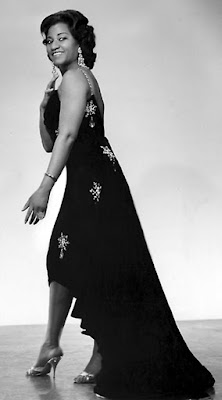Guantanamera - the most famous song in the Spanish language
Our song this week is Guantanamera, a folk song from the
island of Cuba. The title means a woman from Guantanamo, a place now notorious
as an American prison. Guajira is
Cuban slang for a woman from the country (a peasant woman) and is also a style
of Cuban song.
It is
probably Cuba’s most famous song and has been recorded by many international
artists including Joan Baez, José Feliciano, Wyclef Jean, Trini Lopez, Nana
Mouskouri and Bobby Darin; also by such groups as Los Lobos, and the Gipsy Kings. Our version
is by Celia Cruz (pictured left), one of the most popular Latin American singers ever. The song
has a background video of Cuban scenes and listed to her roll those Rs. Click here to see it.
Guantanamera uses words from Cuban poet and independence fighter
José Martí, who was killed fighting against Spanish troops in the Battle of Dos Ríos on
May 19, 1895 while trying to liberate Cuba from Spanish imperial power. It
was radio host José Fernández who popularised the song in Cuba in the 1920s. He
used it in his radio programme and composed new, contemporary words each day as
a satirical commentary on news and politics on the island.
The popularity of the song in Western culture is down to American
folk singer Pete Seeger. He performed the song as a symbol of unity between the
Americans and Cuban people during the Cuba missile crisis. He insisted it be
sung in Spanish to “hasten the day when American becomes a bi-lingual country.”
He recorded it on his 1963 album We Shall Overcome and it was picked up
by the easy-listening group The Sandpipers in 1966 and became a massive
international hit.
There are many verses, but these are the most common.
Yo soy un hombre sincero
De donde crece la palma,
Y antes de morir yo quiero
Cantar mis versos del alma.
Cultivo una rosa blanca
En julio como enero,
Para el amigo sincero
Que me da su mano franca.
Mi verso es de un verde claro
Y de un carmín encendido:
Mi verso es un ciervo herido
Que busca en el monte amparo.
No me pongan en lo oscuro
A morir como un traidor
Yo soy bueno y como bueno
Moriré de cara al sol
A morir como un traidor
Yo soy bueno y como bueno
Moriré de cara al sol
Con los pobres de
la tierra
Quiero yo mi
suerte echar:
El arroyo de la
sierra
Me complace más
que el mar.
Celia Cruz does not
sing the last verse (which is my favourite). This version by Julio Iglesias does have the last
verse.
So
what do the lyrics mean? It is hard to translate poetry, but here goes:
- I am an honest man from where the
palm tree grows and before I die, I want to sing the verses of my soul.
- I grow a white rose in July and
January for the honest friend, who offers me his open hand.
- My verses are clear green and
bright red and like the wounded fawn that seeks shelter in the mountains.
- Don’t put me in the dark to die
like a traitor. I am a good man and I will die with the sun on my face.
- With the poor
people of the earth I cast my lot. The mountain brook pleases me more than
the sea.
If you think the tune is familiar, football fans sing: “There’s only one ...” to the tune of
Guantanamero.


Comments
Post a Comment